二模 省市2018届高三下学期二模教学质量检测英语试题含答案
大家好,伊顿教育小编为大家整理2018年二模试题啦!本文小编为大家整理的是省市2018届高三下学期二模教学质量检测英语试题,希望能帮到各位考过试或者没考过试的同学,没考过试的同学可以将本文拷贝下来当作复习资料,做完记得点击查看:省市2018届高三下学期二模教学质量检测英语试题参考答案

本试卷分为第Ⅰ卷(选择题)和第Ⅱ卷(非选择题)。第Ⅰ卷1至9页,第Ⅱ卷10页至12页。150分,考试时间120分钟。
请考生按规定用笔将试题的答案涂、写在答题纸上。
第Ⅰ卷
第一部分:听力(共两节,30分)
做题时,先将答案标在试卷上。录音内容结束后,你将有两分钟的时间将试卷上的答案转涂到答题卡上。
第一节 (共5小题;每小题1.5分,7.5分)
听下面5段对话。每段对话后有一个小题,从题中所给的A、B、C三个选项中选出较佳选项,并标在试卷的相应位置。听完每段对话后,你都有10秒钟的时间来回答有关小题和阅读下一小题。每段对话仅读一遍。
1. How does the man get exercise?
A. He dances. B. He goes running. C. He plays basketball.
2. What is Paul mainly going to do in the USA?
A. Travel around. B. Study at a school. C. Visit old friends.
3. What does the man mean?
A. He intends to buy another ticket for the movie.
B. He himself is not going to finish watching the movie.
C. He asks the woman to stay before the movie ends.
4. Where does the conversation probably take place?
A. In a store. B. In a bank. C. In a telephone booth.
5. When will the flight arrive?
A. At 4 pm. B. At 4: 30 pm. C. At 6 pm.
第二节(共15小题;每小题1.5分,22.5分)
听下面5段对话或独白。每段对话或独白后有几个小题,从题中所给的A、B、C三个选项中选出较佳选项,并标在试卷相应位置。听每段对话或独白前,你将有时间阅读各个小题,每小题5秒钟;听完后,各小题将给出5秒钟的作答时间。每段对话或独白读两遍。
听第6段材料,回答第6、7题。
6. How often does the man have a Chinese lesson now?
A. Every two weeks. B. Every week. C. Every day
7. In which way does the man want to practice Chinese most?
A. Speaking to Chinese people.
B. Going to a Chinese Corner.
C. Visiting Chinese language websites.
参考答案看文章第一段>>>
#p#副标题#e#
听第7段材料,回答第8至10题。
8. When is the man going to leave the hotel?
A. Today. B. Tomorrow. C. The day after tomorrow.
9. Why can’t the man stay in the same room?
A. It has been booked. B. It is being painted. C. It will be sold.
10. Which room will the man move in?
A. Room 607. B. Room 102. C. Room 314.
听第8段材料,回答第11至13题。
11. What are the speakers talking about?”
A. A trip. B. A hobby. C. A stamp.
12. What does the woman think of collecting stamps?
A. Cheap. B. Rewarding. C. Difficult.
13. What is the woman going to do?
A. To share a story with her friends.
B. To buy a new set of stamps.
C. To see some stamp collectors.
听第9段材料,回答第14至16题。
l4. What is the woman doing?
A. She’s making a workout plan.
B. She’s buying exercise equipment.
C. She’s consulting about a fitness service.
15. Who will give a new customer a fitness assessment
A. A personal trainer. B. A qualified doctor. C. A regular customer.
16. How much will the woman pay?
A. $ 500. B. $ 2, 500. C. $ 4,500.
听第10段材料,回答第17至20题。
17. What is the woman?
A. A bus driver. B. A tourist guide. C. A salesperson.
18. Where should the listeners go if they get lost?
A. To the ticket office. B. To the tourist bus. C. To the main gate.
19. What may surprise the listeners?
A. The palace has become a museum.
B. There are people living in the palace.
C. Kings and queens often come to the palace.
20. What should the listeners do before they have their photos taken with the local people?
A. Put on traditional clothes. B Ask for their permission. C. Talk with their families.
#p#副标题#e#
第二部分 阅读理解(共两节,40分)
第一节(共15小题;每小题2分,30分)
阅读下列短文,从每题所给的A、B、C和D四个选项中,选出较佳选项,并在答题卡上将该项涂黑。
A
It is halfway through October. The sun arrives early and I stare out my window, feeling shame for invading(侵犯)the privacy of the homeless woman who has settled across the street. I am not sure when she first appeared, maybe a month ago. Each morning I watch as she gets out from the narrow space between the two large buildings across from mine.
She wears the same dirty, badly torn dress every day. I can see she fights to pull herself up into a standing position. She fails on the first two or three tries, but determination always wins out. She remains leaning against the wall for several long minutes, appearing to gather the necessary strength needed to pick up her possessions — all packed into five plastic bags. With tears in my eyes, I watch as she places her feet pointing outward to avoid falling. Her steps are measured and cautious as she slowly makes her way to the corner and disappears.
When I first noticed this woman, I went across the street and offered her 20 dollars, but she turned her back to me and pretended not to see me. The expression on her face was one of shame, causing me to feel guilt for invading her privacy. The next night I bought a hotdog and a Coke, and left them in the spot when she was not there. Feeling like a spy, I watched as she ate the hotdog like a starving car that had not eaten for days.
I too often find myself complaining about life, but when I look out my window and see the old woman, I feel the need to apologize for my foolish pride in not realizing how fortunate I really am.
There are many poor people in my town. I have become familiar with many of their faces, and then suddenly they disappear. I know that one day the old woman will be gone and I will have no idea where she is. I fear that day.
21 .What is the main idea of paragraph 2?
A. Life is tough for the homeless woman.
B. Poverty causes the woman’s poor health.
C. The woman doesn’t care about her appearance.
D. Possessions mean much to the woman.
22. Why did the woman refuse the author’s 20 dollars?
A. The money didn’t help much. B. She didn’t like the author.
C. Accepting money was guilty. D. She felt her dignity was hurt.
23. What lesson does the author learn from the homeless woman?
A. Complaints can sometimes make life worse.
B. He should appreciate his present life more.
C. More is to be done to make life meaningful.
D. We should all apologize for ignoring the poor.
24. Which of the following words best describes the author of the text?
A. Optimistic. B. Sympathetic. C. Determined. D. Easy一going.
#p#副标题#e#
B
A laptop, a hair straightener, Christmas lights, an e一reader, a kettle, two bags, a pair of jeans, a remote一control helicopter, a spoon, and a dining一room chair. All broken.
It sounds like a pile of things that you’d stick in boxes and take to the’ dustbins. In fact .it’s a list of things mended in a single afternoon by British volunteers determined to get people to stop throwing things away. This is the Reading Repair Cafe, part of an international network aimed at dealing with a world of rubbish.
The helicopter belongs to William who cheerfully describes himself as “mechanically incompetent”. He has owned it for 8 years, but 3 years ago it stopped working and it has been sitting unused in his cupboard ever since.
He sits down at the table of Colin Haycock, an IT professional who volunteers at the repair cafe, which has been running for about four years and is a place where people can bring all manner of household items to be fixed for free. In less than five minutes, Haycock has fixed the helicopter and it works well.
William looks ashamed; Haycock looks pleased. “I wish they were all that simple,” he says.
Today, the repairers will stop 24kg of waste from going to landfill(垃圾填埋场) and save 284kg of CO2. Some items can’t be fixed on the spot but very little needs to be thrown away.
Gabrille Stanley, who used to run a clothing business, says she was drawn to volunteering at the repair cafe to fight the “throwaway culture” she sees. About 300, 000 tons of clothing was sent to landfill in the UK in 2016 and a report from WRAP puts the average lifespan(寿命) for a piece of clothing in the UK at 3. 3 years.
25. What is the author’s purpose in writing paragraph 1?
A. To present the main idea.
B. To support the author’s opinion.
C. To raise readers’ interest.
D. To establish an argument.
26. Why doesn’t William repair the helicopter himself?
A. He is both lazy and busy. B. He is ashamed of repair work.
C. He doesn’t treasure the helicopter. D. He lacks the necessary skills.
27. Which of the following argument will Gabrille Stanley probably agree with?
A. People should send old clothing to landfill.
B. People should hold on to their clothes longer.
C. Clothing factories are to blame for the waste.
D. Running a clothing business is no easy task.
#p#副标题#e#
C
The descriptions are scary. Some people felt fine in the morning and then were dead by night. Patients coughed up blood. Their faces turned blue. That was what happened in 1918. A deadly flu killed tens of millions of people around the world. It is 100 years later. Scientists are thinking about how to keep us safe from another super一flu.
Dr. Anthony Fauci says we need one vaccine(疫苗) that can protect against most or all types of the flu. Scientists want a shot that people could get every 5 or 10 years to get rid of normal flu shots. Maybe someday we will need just one shot. It could last our whole lives. It will not be easy. Scientists have been learning about the flu for 100 years. Still, the flu often beats our best plans to stop it. That is because it is always changing.
The immune system(免疫系统) protects the body. It keeps us healthy by fighting things that might harm the body. To get around our immune system, the flu changes itself every year. Scientists have a new plan, though. They are learning how the flu tricks the immune system. They are finding which part of the flu stays the same each year. The 1918 flu outbreak shows why this is so important. Back then, there was no flu vaccine. There was no way to stop it. By winter 1919, the flu had infected one一third of the world’s population, killing more than 50 million people in a short time.
In 2009, scientists made a great discovery. They learned something new. Sometimes, people’s immune systems make a small number of special antibodies. Antibodies are proteins(蛋白质) in the blood. These proteins stop us from getting sick. These special antibodies can stop the flu. Scientists are trying different tricks to get people’s bodies to make more of those antibodies. They still need to learn more, though. In the meantime, Fauci says it is silly to think about what the next flu might bring.” We just need to be prepared, ” he said.
28. The flu tricks the immune system by_ .
A. changing itself every year B. remaining totally unchanged
C. producing special antibodies D. harming proteins in the body
29. What can we learn from the text?
A. The flu today causes more deaths than it did 100 years ago.
B. A flu vaccine shot with long一term effects is easy to make.
C. The super flu will take about 5 or 10 years to get rid of.
D. People don’t have to be too concerned about the flu.
30. What is the main idea of the text?
A. The deadly flu killed tens of millions of people in such a short time.
B. Scientists are trying to figure out the best protection against the flu.
C. The immune system plays a vital part in keeping us from being sick.
D. People around the world are scared of the sudden outbreak of the flu.
#p#副标题#e#
第二节 (共5小题;每小题2分,10分)
根据短文内容,从短文后的选项中选出能填入空白处的较佳选项。选项中有两项为多余选项。
Why I Got Rid of My Cell Phone
In 2017 I decided to take a break from my cell phone. Instead of shutting it off completely, I decided to turn it off for a month to see how it goes. By the end of the month I found that I could live without a cell phone. It has been seven months since I have lived without a cell phone. I would like to share with you the reasons why I decided to get rid of my cell phone.
1. 31 Checking my phone was the first thing I did when I woke up and the last thing I did before going to sleep. Throughout the day I would check my phone countless of times. It became a bad habit of mine in which the only way to break it was to be far away from it.
2. When I owned a phone, I was constantly connected to it. I wasn’t taking enough time to see what was right in front of me. There was no end of the day when it came to work and there was not nearly enough time to relax. Instead, I was constantly going. 32
3. 33 If I was having a conversation with someone, I would think about what else I could he doing or texting other people instead of being fully present in the conversation. Now that I don’t have a cell phone, I am more present in my conversations and to my surroundings.
4. I was completely dependent on my cell phone. 34 A cell phone was my quick and easy problem salver. Whatever problem I met during the day, I used my cell phone for the answer. Without my cell phone I have become more self一dependent and a self一problem salver.
5. I also found that my sleep wasn’t as good as it had been in the past. Screens stimulate(刺激) your mind and can affect your natural sleep patterns. 35 However, I did not have the self- control to do this I would go to bed with a stimulated mind causing me to have a poor night sleep.
A. It made me less social.
B. I found that I was addicted to my phone.
C. Having a cell phone split my attention in half.
D. I know that is not good for my health.
E. The answer to this is to turn off your phone a few hours before bed.
F. These phone一free travels were some of the most liberating moments of my life.
G. It was my watch, my alarm clock, my email, my maps, my wallet, and my way to talk with friends.
第三部分 语言运用(共两节,45分)
第一节 完形填空(共20小题;每小题1.5分,30分)
阅读下面短文,从短文后各题所给的A、B、C和D四个选项中,选出可以填入空白处的较佳选项,并在答题卡上将该项涂黑。
Mariana was just leaving a doctor’s appointment last Wednesday. All of a sudden, she found herself in the middle of what felt like a 36 in a movie. Mariana had been returning to her office in downtown Ottawa when she heard a woman down the street yell that a man had 37 her wallet.
Sure enough, a man started running away from the scene of the 38 一but not before Mariana could 39 after him. After running for two blocks, Mariana rounded the corner into an alleyway and found that the 40 had stopped running and had started to 41 instead.
“He came out from behind the dustbin and said in a very 42 tone, ‘I’m sorry, I won’t do this anymore. Here is the 43 . Just take it, take it,’ ” she told the local media. “So I took the wallet, and the woman 44 soon after. I gave it back to her and he stayed there, 45 a lot.” Recognizing that the man was extremely 46 , Mariana decided to take him to a 47 down the street and bought him a large black coffee.
The man 48 that he had come to the city with his friends from Toronto, but they had 49 him in Ottawa without any money. Mariana did her best to 50 the man before showing him how to get to the public library where he could seek help from the 51 workers on duty. She says that she 52 that the man gets the help that he needs, and she has no 53 about her actions from that day.
“You kill more flies with 54 than you do with vinegar,” she said. “I wanted to show him some 55 . It is a more powerful remedy(治疗方法) to forgive and forget past crimes.”
36. A. song B. scene C. disaster D. party
37. A. checked B. returned C. stolen D. spotted
38. A. crime B. accident C. match D. quarrel
39. A. line up B. get on C. stand up D. take off
40. A. victim B. waiter C. burglar D. policeman
41 .A. struggle B. cry C. flee D. pray
42. A. guilty B. aggressive C. friendly D. innocent
43. A. coffee B. ticket C. menu D. wallet
44. A. left B. woke C. caught up D. broke down
45. A. complaining B. apologizing C. suffering D. charging
46. A. upset B. calm C. stubborn D. gentle
47. A. shelter B. clinic C. station D. cafe
48. A. insisted B. announced C. explained D. intended
49. A. reminded B. deserted C. teased D. arranged
50. A. comfort B. connect C. approach D. thank
51. A. retired B. skilled C. medical D. social
52. A. suspects B. admits C. expects D. understands
53. A. debates B. regrets C. confidence D. worry
54. A. honey B. wine C. poison D. glue
55. A. courage B. appreciation C. reflection D. sympathy
#p#副标题#e#
第Ⅱ卷
第二节 (共10小题;每小题1.5分,15分)
阅读下面材料,在空白处填入适当的内容(1个单词)或括号内单词的正确形式。
The first bicycle appeared in France in the 1790s. It was 56 little wooden horse with a fixed front wheel. Because the wheel was fixed, it could not be turned right or left. The only way it could be controlled was by the rider 57 (push)against the ground with his or her feet. In 1817, a German replaced the fixed front wheel with one 58 could be turned. Now the wooden horse could be directed right or left. The rider still needed to push it with his or her feet on the ground. In 1839, a Scot 59 (name ) MacMillan designed the first bicycle一like machine with foot board and rode it for 40 miles in only 5 hours. The bicycle got more 60 (comfort)in 1869 when rubber tires were introduced. Around the same time, the front wheels began to grow larger while the back wheels got smaller. During the 1880s, 61 (bicycle)enjoyed a sudden 62 (grow) in popularity. However, they weren’t very safe. Sitting high up towards the front of the bicycle and traveling very fast, the rider could be 63 (easy) thrown over the front wheel if the bicycle hit a small stone. Fortunately, the “safety bicycle” 64 (invent) in 1884. The safety bicycle had equal一sized wheels and tires with air in them. And more improvements quickly followed. No doubt there will be 65 (far) improvements in design and materials in the future.
第四部分 写作(共两节,40分)
第一节 应用文写作(15分)
假定你是李华,注意到你校学生很少进行英语文学阅读。请给全校同学用英语写一封倡议书,倡导大家多阅读英语文学作品。内容包括:
1、介绍现状;
2、你对英语文学阅读的看法;
3、发出倡议。
注意:
1、词数80左右;
2、可适当增加细节,以使行文连贯。
#p#副标题#e#
第二节 读后续写(25分)
阅读下面短文,根据所给情节进行续写,使之构成一个完整的故事。
Megan is a bright and curious little girl, as are most children of eight years old. When walking she looks up, down, or sideways, never where she’s going. One day, she spotted, partly covered by leaves and litter, a $ 100 bill. She looked to see if anyone was watching and bent down to crumple (揉捏) the bill in her tiny hand. Sliding it into her jacket pocket, she took another guilty look around and then hurried off to school.
Her day was spent watching her jacket hung on the wall by the door. During lunch, she took it off and ran to the far side of the playground to pull out the crumpled bill and stare at it and see that it was real and now belonged to her. When some older kids wandered by, she put it back into her pocket quickly and rushed back into the school.
It wasn’t until she was riding home on the school bus that she started to wonder about who the bill had belonged to before it came to be hers. “Probably somebody rich”, she thought. “Why else would they be so careless with $ 100 bills?”
She imagined a tall man in a fine wool jacket walking to his big car and pulling out a roll of money, not noticing as one bill drifted(飘落) to the ground. Putting the roll back in his pocket, he climbed into his car and drove away. Just then, a wind blew some leaves to cover most of the lost bill.
But, then she thought, what if the bill had been a present for his little niece living with her grandma because her parents were killed in a car crash. She’d have treasured that $ 100 because it came from her generous uncle. And she’d be dreaming, even now if she hadn’t realized she’d lost it, of all the toys and treats that the bill could buy. She could use it to buy a present for her grandmother. She would be heartbroken to find she’d lost that $ 100.
注意:
1.所续写短文的词数应为150左右;
2.应使用5个以上短文中标有下划线的关键词语;
3.续写部分分为两段,每段的开头语已为你写好;
4.续写完成后,请用下划线标出你所使用的关键词语。
Paragraph 1
walking slowly towards her house, she debated whether to tell her mom of her new一found treasure.
Paragraph 2
The next day was Saturday and and her mom arrived at the local supermarket early.
- 热门课程
- 热门资讯
- 热门资料
- 热门福利
-
 黄河小班课人数多吗?教学效果怎么样?黄河小班课之前就有家长和学生想要了解过,今天为了满足大家的要求,小编就来好好给大家解答一下关于黄河小班课的一些内容,让大家能够更加方便地做出选择。 一、黄河小班课人数多吗? 黄河小班课的人数控制得挺讲究,既不是那种三五个人的微型小组,也不会像其他学校那样挤着四五十个人,一个班大概在6到15人
黄河小班课人数多吗?教学效果怎么样?黄河小班课之前就有家长和学生想要了解过,今天为了满足大家的要求,小编就来好好给大家解答一下关于黄河小班课的一些内容,让大家能够更加方便地做出选择。 一、黄河小班课人数多吗? 黄河小班课的人数控制得挺讲究,既不是那种三五个人的微型小组,也不会像其他学校那样挤着四五十个人,一个班大概在6到15人 -
 “白驹过隙”怎么读?到底有什么含义?“白驹过隙” 是形容时光的经典表达,可你真能笃定 “驹” 字读 “jū” 而非 “jú”?而且 “白驹” 为何是 “白色的小马”,“过隙” 又特指什么缝隙? 一、“白驹过隙”怎么读? “白驹过隙”的正确读音是bái jū guò xì,“白驹”指白色的骏马,常被引申为太阳的光芒或飞速流逝的时
“白驹过隙”怎么读?到底有什么含义?“白驹过隙” 是形容时光的经典表达,可你真能笃定 “驹” 字读 “jū” 而非 “jú”?而且 “白驹” 为何是 “白色的小马”,“过隙” 又特指什么缝隙? 一、“白驹过隙”怎么读? “白驹过隙”的正确读音是bái jū guò xì,“白驹”指白色的骏马,常被引申为太阳的光芒或飞速流逝的时 -
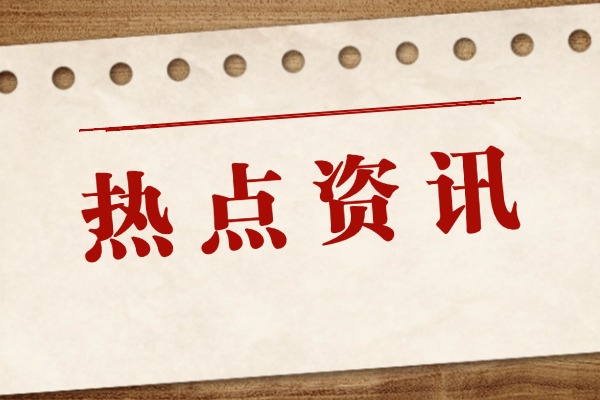 博大单招在文化课提升方面优势如何?补习效果好吗?单招相信第一次接触的家长和同学们有很多问题都不了解,很多家长为了让孩子更好地学习就去选择一个合适的单招补习,那么博大单招在这方面的优势到底怎么样?能不能帮助孩子更好地提升呢?今天我们就来一起好好了解一下。 一、博大单招在文化课提升方面优势如何? 博大单招在文化课提升这方面那真的是研究得透透的
博大单招在文化课提升方面优势如何?补习效果好吗?单招相信第一次接触的家长和同学们有很多问题都不了解,很多家长为了让孩子更好地学习就去选择一个合适的单招补习,那么博大单招在这方面的优势到底怎么样?能不能帮助孩子更好地提升呢?今天我们就来一起好好了解一下。 一、博大单招在文化课提升方面优势如何? 博大单招在文化课提升这方面那真的是研究得透透的 -
 “琨玉秋霜”怎么读?到底有什么含义?“琨玉秋霜” 中的“玉” 和 “秋霜” 都是自带高洁感的意象,可 “琨” 字到底读 “kūn” 还是 “hún”?单看字面像在描绘玉石与秋霜的景致,却猜不透为何要将这两种事物组合,更不清楚它的核心指向是写景、咏物还是喻人。今天咱们先把读音校准,再拆解这四字里藏着的纯粹与庄重。 一、“琨玉秋霜”
“琨玉秋霜”怎么读?到底有什么含义?“琨玉秋霜” 中的“玉” 和 “秋霜” 都是自带高洁感的意象,可 “琨” 字到底读 “kūn” 还是 “hún”?单看字面像在描绘玉石与秋霜的景致,却猜不透为何要将这两种事物组合,更不清楚它的核心指向是写景、咏物还是喻人。今天咱们先把读音校准,再拆解这四字里藏着的纯粹与庄重。 一、“琨玉秋霜”
-
 2022高考英语基础知识点!西安伊顿老师带你了解!2022高考英语基础知识点!西安伊顿老师带你了解!高中的英语是一个需要长期积累以及记忆的科目,在高考中只有针对这些知识进行一定的了解和积累,才可以在考试中取得好成绩。针对这种情况,小编请到了西安伊顿老师来给大家总结归纳一下关于高考英语基础知识点的记忆内容,希望对大家有所帮助。对于英语还是需要靠日
2022高考英语基础知识点!西安伊顿老师带你了解!2022高考英语基础知识点!西安伊顿老师带你了解!高中的英语是一个需要长期积累以及记忆的科目,在高考中只有针对这些知识进行一定的了解和积累,才可以在考试中取得好成绩。针对这种情况,小编请到了西安伊顿老师来给大家总结归纳一下关于高考英语基础知识点的记忆内容,希望对大家有所帮助。对于英语还是需要靠日 -
 关于“呐喊与行动那个更重要”的辩论稿写作指导!一直以来,辩论稿的写作都是大家司空见惯的,但是也是很多同学容易忽视的。现在的语文作文考察的范围和广度越来越大,涉及到的文体也越来越多,因此大家在备考语文作文的时候,还是要增加自己的知识面,增加自己的见识。辩论稿大家见得比较多,但是在语言文字上以及结构上的学习,还是非常值得探究的,下面小编给大家分享了一则辩论稿,大家可以练习一下。
关于“呐喊与行动那个更重要”的辩论稿写作指导!一直以来,辩论稿的写作都是大家司空见惯的,但是也是很多同学容易忽视的。现在的语文作文考察的范围和广度越来越大,涉及到的文体也越来越多,因此大家在备考语文作文的时候,还是要增加自己的知识面,增加自己的见识。辩论稿大家见得比较多,但是在语言文字上以及结构上的学习,还是非常值得探究的,下面小编给大家分享了一则辩论稿,大家可以练习一下。 -
 “直播带货”有关的作文写作指导!立意和审题指导!高中的作文写作更多的是来自于社会现象的思考,或者生活的思考,所以高中的同学在写作文的时候可以从生活细节入手,寻找素材,因为任何题目都是取之于生活,进而引发的一系列的思考行为。本次伊顿教育小编给大家分享的这篇作文也是一个社会现象的评述,材料内容是关于“直播带货”,这个大家都是不陌生的,而且有的同学也是参与者,所以对于此也是非常的熟悉的。下面我们可以来看看这篇作文写作的指导。
“直播带货”有关的作文写作指导!立意和审题指导!高中的作文写作更多的是来自于社会现象的思考,或者生活的思考,所以高中的同学在写作文的时候可以从生活细节入手,寻找素材,因为任何题目都是取之于生活,进而引发的一系列的思考行为。本次伊顿教育小编给大家分享的这篇作文也是一个社会现象的评述,材料内容是关于“直播带货”,这个大家都是不陌生的,而且有的同学也是参与者,所以对于此也是非常的熟悉的。下面我们可以来看看这篇作文写作的指导。 -
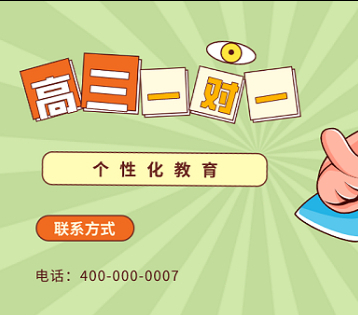 2021年9月山水联盟高三开学联考数学试卷及答案(原版)!2021年9月山水联盟高三开学联考已经结束,伊顿教育小编给大家整理了本次联考的数学试卷以及答案,各位相关的小伙伴可以参考一下。对于高三的学习,小编建议大家在每一次的考试之后,都能够仔细的分析一下自己的失分点,对于自己没有掌握的知识点可以尽早的掌握。
2021年9月山水联盟高三开学联考数学试卷及答案(原版)!2021年9月山水联盟高三开学联考已经结束,伊顿教育小编给大家整理了本次联考的数学试卷以及答案,各位相关的小伙伴可以参考一下。对于高三的学习,小编建议大家在每一次的考试之后,都能够仔细的分析一下自己的失分点,对于自己没有掌握的知识点可以尽早的掌握。










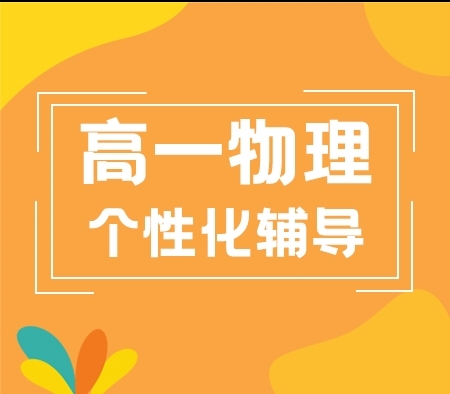
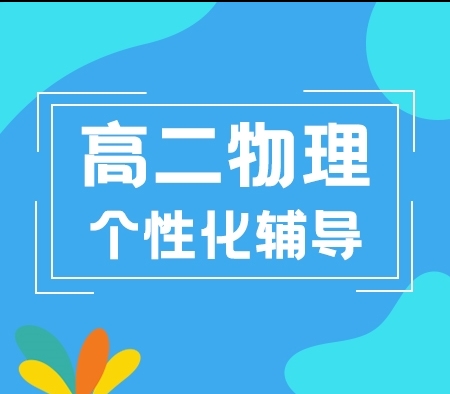
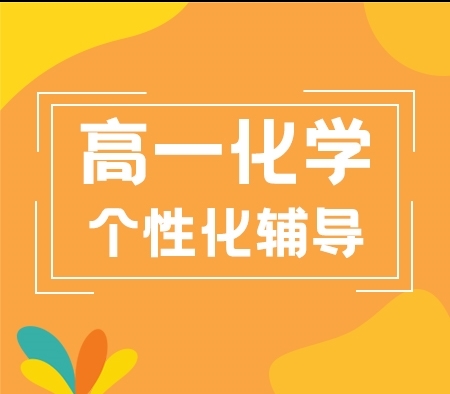
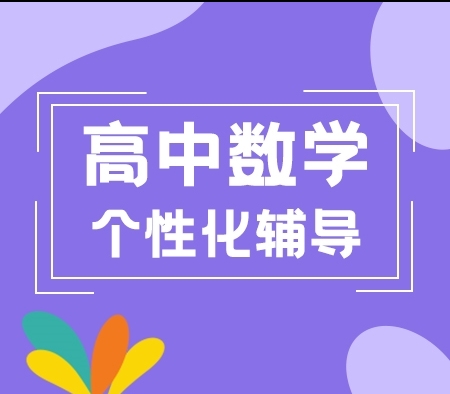




 All right reserved
All right reserved
